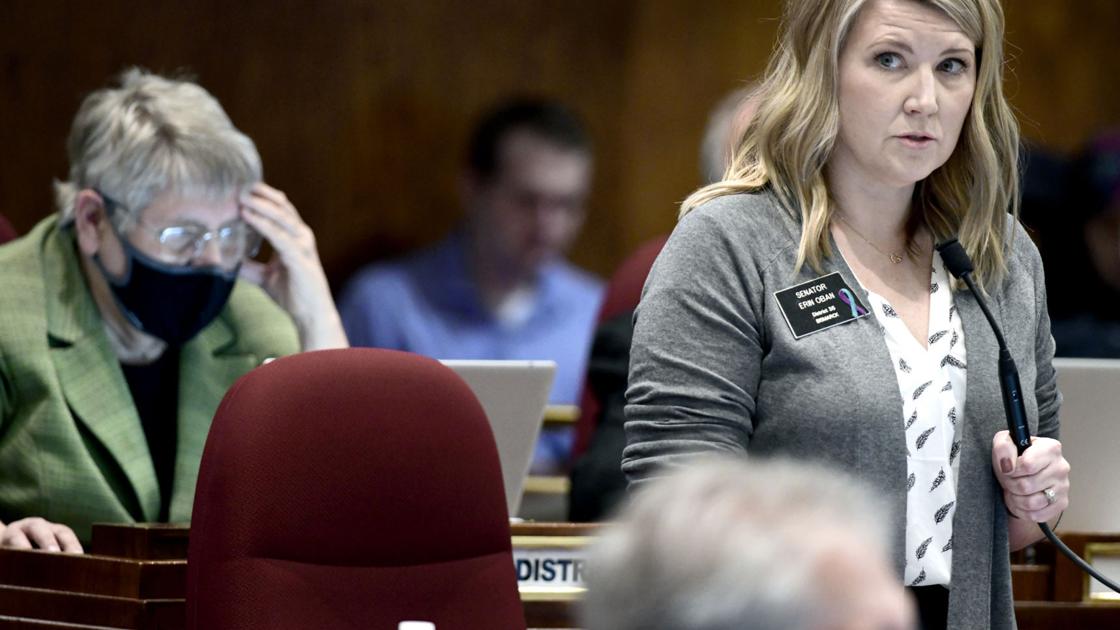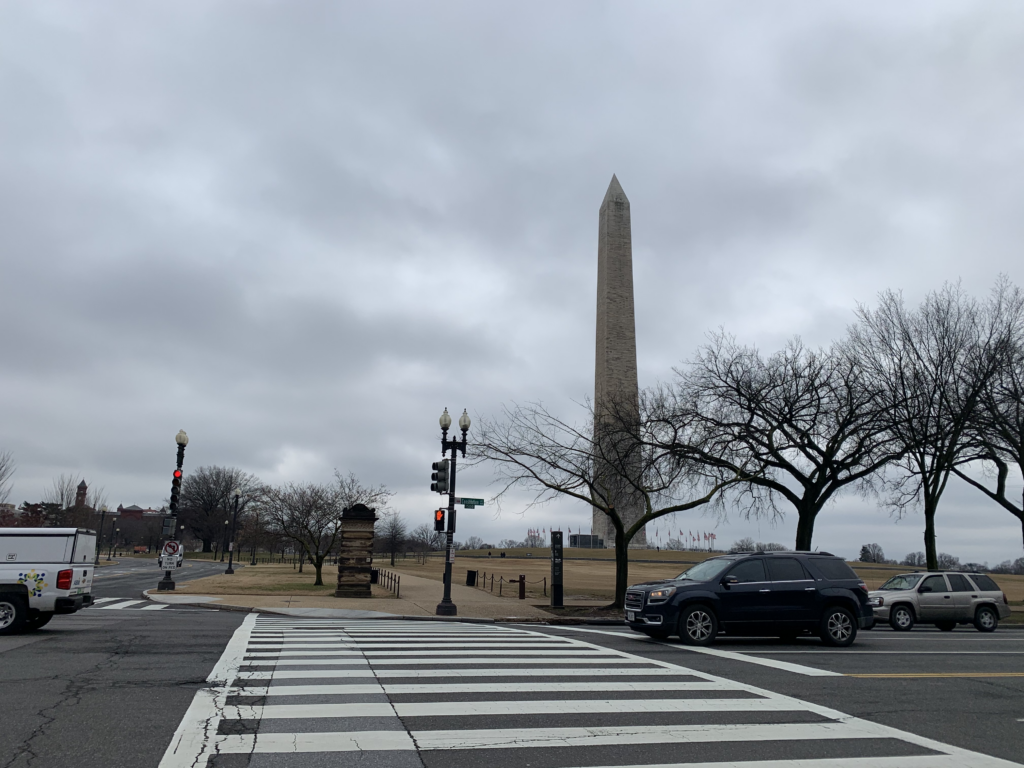The North Dakota Senate on Friday overwhelmingly passed bills banning critical race theory in public schools and restricting vaccine mandates, sending the measures on to Gov. Doug Burgum, who signed both into law.
The divisive topics were among the last the Senate dealt with before this week’s special session of the Legislature wound down to a mid-Friday adjournment.
House Bill 1508 sponsored by Rep. Jim Kasper, R-Fargo, which forbids the teaching of critical race theory, passed the House Thursday morning on a 76-16 vote. The Senate voted 38-9 to approve it early Friday.
Critical race theory centers on the idea that racism is systemic in the nation’s institutions and that they function to maintain the dominance of white people in society. Kasper has called the academic theory “insidious” and said the goal of the legislation is to protect children from inappropriate topics.
Senators who supported the legislation said that while critical race theory is not present in North Dakota curriculum, the bill is a proactive measure that prevents it from coming into schools.
“We’re more concerned with what’s happening nationwide,” said Sen. Donald Schaible, R-Mott. “We want to make sure this train of thought does not come into the state.”
People are also reading…
Some lawmakers who opposed the bill said they thought having the state mandate what cannot be taught erodes control from school boards. Other opponents said the legislation leaves children unprepared to live in the world outside North Dakota.
“They can’t be critical thinkers if we put a bubble around them and say, ‘You can’t learn about this,’” said Sen. JoNell Bakke, D-Grand Forks.
Sen. Erin Oban, D-Bismarck, said that local schools are dealing with more real issues than the theory in their curriculums, and that people’s fear and mistrust stemming from nearly two years of the coronavirus pandemic is being taken advantage of with topics such as critical race theory.
“The bill is not serious policy, it’s a red herring, and it makes a mockery of our Century Code (state laws) when we’re willing to plug stuff in there instead of having difficult conversations,” she said.
The American Civil Liberties Union of North Dakota opposed the bill, calling it a “classroom censorship bill.”
“This bill addresses the concerns of parents while preserving the decision-making authority of local school boards to approve curriculum that is factual, objective and aligned with state content standards,” he said in a statement.
Sen. Erin Oban, D-Bismarck, speaks on a bill to ban the teaching of critical race theory.
Vaccine mandates
The House late Thursday and the Senate on Friday passed a bill that bans government entities below the federal level from ordering COVID-19 vaccine mandates.
House Bill 1511 also expands exceptions for employees to opt-out of a mandate, including allowing workers to regularly test for the disease, prove they have antibodies built up, or claim medical, religious or philosophical exemptions.
Private companies still will be allowed to install their own vaccine mandates. And the legislation doesn’t apply to employers if they are required to comply with federal vaccine mandates, which could include hospitals, nursing homes, federal contractors and businesses with more than 100 workers.
The bill says state and local government entities can’t require people to disclose their vaccination or antibody status unless they are incarcerated or receiving care at the State Hospital or a public health unit, or are employees or visitors of those facilities. It also allows colleges and universities to require people to disclose their vaccination or antibody status.
The bill also bars the state Health Department from creating QR code vaccine “passports,” a term meaning proof of vaccination. QR codes are images made of black and white squares that store information that can be read with smartphone cameras.
North Dakota has joined three lawsuits against the Biden administration in an attempt to strike down vaccine mandates for health care workers, federal contractors and large businesses.
The bill was sponsored by Rep. Robin Weisz, R-Hurdsfield. It passed the House on a 80-11 vote and the Senate on a 33-14 vote. Burgum signed it without comment.
Much of the discussion surrounded the balance among health care providers’ ability to staff their facilities, other employers’ rights and the rights of people.
Sen. Kristin Roers, R-Fargo, who is a nurse, said she was conflicted on how to vote for the bill, since she has seen the benefits of the COVID-19 vaccine firsthand.
“I don’t want any business to tell me what I can and cannot do, but I also work in health care,” she said. Roers added that she didn’t think the bill had enough time to be fully considered given the short length of the special session.
Sen. Janne Myrdal, R-Edinburgh, said she was concerned with protecting the rights of her constituents.
“The one thing I’m going to side with is the individual that’s protected in the Constitution,” she said.
The legislation contains a sunset date of Aug. 1, 2023, so that the issue can be addressed during the next legislative session, in early 2023.
The House defeated another COVID-19 vaccine bill late Thursday. House Bill 1510 would have banned discrimination based on vaccination status and would have banned COVID-19 from the state school immunization law.
Off-label ivermectin
The Senate without debate on Friday approved a bill 38-9 that would prevent certain medical professionals from being disciplined for prescribing or dispensing medications for off-label use.
House Bill 1514 was referred to as “the ivermectin bill” by some legislators, referencing the antiparasitic drug that some COVID-19 vaccine skeptics tout as a treatment for the coronavirus disease, though it’s unproven.
The bill introduced by Rep. Bill Tveit, R-Hazen, changed markedly from its introduction. It initially would have required hospitals to honor a prescription for federal Food and Drug Administration-approved drugs for off-label use, ban hospitals from discriminating based on a patient’s vaccination status, and ban pharmacists from refusing to dispense a prescription drug for off-label use — such as ivermectin — even if against their own judgment.
Burgum signed the bill without comment.
Tax bills
Representatives on Friday gave final approval to a bill that excludes Social Security benefits from income tax, according to The Associated Press. Legislative budget writers estimate the measure will reduce state revenues by $14.6 million in the current two-year budget cycle. Burgum signed Senate Bill 2351.
Senators also gave final approval Friday to a bill that provides an individual income tax credit equal to a North Dakota resident taxpayer’s net tax liability, up to a maximum of $350, or $700 for individuals filing a married joint return.
The income tax relief was pushed hard by Burgum, who recommended using a portion of the state’s hefty and better-than-forecast ending fund balance of $1.1 billion in the last two-year budget cycle to provide tax relief to residents. The governor on Friday signed House Bill 1515 providing an estimated $211 million in income tax relief over the next two years.
“This bill is a victory for half a million hardworking North Dakotans, providing them with real, meaningful tax relief for this year and the next,” Burgum said in a statement.
Session wrap-up
The main reasons for the special session of the Legislature that began Monday were to approve a new legislative district map based on the 2020 census and decide on how to spend $1 billion in federal Rescue Plan coronavirus aid, though it strayed to other topics such as income tax relief and the culture war issues.
Lawmakers approved a new district map, creating three new districts in the state’s fastest-growing areas and erasing an equal amount in population-lean rural regions. The map also has House subdistricts on the Turtle Mountain and Fort Berthold Indian Reservations, a move tribal leaders believe will increase the odds for electing their own members to the Legislature. Burgum signed the bill into law on Thursday. The map can be found at https://bit.ly/31WZzjL.
The plan to spend the federal COVID-19 aid — mostly on one-time projects such as infrastructure and higher education buildings — was awaiting the governor’s signature. Included in the bill is $150 million in grant money to bring more natural gas service to eastern North Dakota — possibly through a west-east pipeline — and $38 million for Bismarck State College’s polytechnic project. Only $63 million of the federal funding was not spent by state lawmakers. The 2023 Legislature can allocate that money.
Sen. Nicole Poolman, R-Bismarck, announced during the session that she will not seek reelection after a decade in the Legislature, citing both personal reasons and a growing erosion of civility in politics.
Four Minot-area Republican district chairs organized a “We the People” rally on the Capitol lawn Monday that drew hundreds of people to support personal liberty. One rally organizer, Rep. Jeff Hoverson, R-Minot, couldn’t attend because he has COVID-19 and is quarantining.
Hoverson, who participated in the session remotely, later was criticized for disparaging remarks toward the House majority leader during debate about redistricting. He apologized.
The session cost taxpayers about $64,000 a day.
(The Associated Press contributed to this story.)
Reach Sam Nelson at 701-250-8264 or sam.nelson@bismarcktribune.com.









